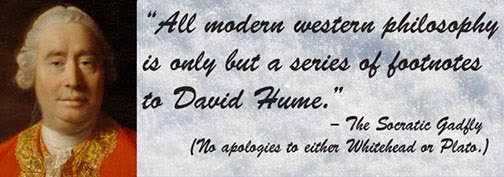I could tell it was a pop bio not an actual history. But, even by those standards, Eric Metaxas has written dreck.
 Martin Luther: The Man Who Rediscovered God and Changed the World by Eric Metaxas
Martin Luther: The Man Who Rediscovered God and Changed the World by Eric MetaxasMy rating: 1 of 5 stars
Meh at best as a pop bio from a conservative evangelical POV; worse than that otherwise
Per the first half of my header, that's the only reason I rated this book with two stars rather than one. Even though Metaxas discusses Luther's differences with the Reformed on the Eucharist, and a lesser degree on other things, and even tries to take a look at both the philosophy and theology behind this (while failing as much as succeeding), Metaxas still tries to paint Luther as a modern American conservative Evangelical rather than as a German Evangelical, ie, Lutheran.
The epilogue, trying to pretend Luther was some sort of forerunner of modern Western democracy, only made this worse — and more laughable at the same time. Again, though, the fact that it's being tried, and will probably be tried by others from now through maybe 2030, with the 500th anniversary events, gets it that second star rather than 1.
That said, there's other errors, mainly errors of fact, though a few others of interpretation, like those above.
I actually was originally going to rate it three stars, despite the above, but two errors late in the book got it knocked down to two stars, and almost to one, in spite of me wanting to hold it up as an example.
OK, let's dive into those errors.
First, after debunking several Luther myths in the introduction, Metaxas perpetuates two BIGGIES himself.
In reality, the consensus of good historians is that Luther did NOT nail, paste, or otherwise affix a sheet or two of 95 Theses to the door of the Castle Church in Wittenberg on Oct. 31, 1517.
A similar consensus says that Luther did NOT say "Here I stand" at the Diet of Worms.
OK, next. Erasmus did NOT restore first-century Greek to his edition of the New Testament. Instead, his "textus receptus" was similar to that in the Orthodox world of this time. Erasmus didn't have Sinaiticus, Vaticanus or other older codices, nor did he have the treasure of modern papyri finds. Also, Erasmus had no detailed methodology of textual criticism.
Tonsuring? It's Christian martyrological legend that emperors inflicted it upon apostles or later generations of Christians. That said, per the likes of Candida Moss, the severity and broadness of Roman Imperial persecution of Christians has itself been mythologized. Finally, although in these cases it involves shaving the head entirely, not just in spots, tonsuring-like practices are known to other world religions.
The idea that Luther didn't have a "modern" idea of consciousness? Well, Metaxas sets up a straw man by claiming that what he calls the "modern" idea of consciousness is modern. Less than a century after Luther, Shakespeare has Polonius in Hamlet say "To thine own self be true." And, a full 2,000 years earlier, the oracle at Delphi said "Know thyself." And, from that, Socrates said, "The unexamined life is not worth living." Of course, Metaxas is here ultimately setting up a bank shot for how Luther was different from today, but yet, was a lead-in to Merika or something.
After Erasmus, Metaxas trips on his Greek New Testament again. While the verb synago is in the New Testament in various forms, including as a participle for gathering together for worship, including gathering for the Eucharist, the noun synaxis is not. It is used in post-NT writings, I believe beginning as early as the Didache, but the noun is not in the NT.
Now, the two biggies, which give the game up.
On page 391, Metaxas claims that Suleiman the Magnificent, as part of expanding the Ottoman Empire, was trying to expand sharia law.
Tosh and rot. The Turks, and their Central Asian Turkic cousins, have been known for their generally moderate interpretation of Islam. And the Ottoman Empire was known for its millet system, which gave a relatively high degree of freedom to its Christian — and Jewish —residents.
Given that Metaxas, if not a full blown right-winger, hangs out with a lot of conservative politicos and is a talking head for a major right-wing radio network, I can only consider this to be rank pandering.
Page 417 follows in its train.
Metaxas claims that Luther, in his anti-Jewish diatribes, was influenced by "Victory over the Godless Hebrews," which he claims contain things "which we now know to be untrue." Among this, he lists Jewish blasphemies against Jesus and Mary, and claims by Jews that Jesus did his miracles by kabbalistic magic.
Deleting the "kabbalistic," as it didn't exist 2,000 years ago, and actually, these things ARE true.
Metaxas is either ignorant of some things written in the Talmud, and even more in the Toledoth Yeshu, or he's heard about such things and refuses to investigate, or thirdly, he fully knows about them and covers them up.
In any case, I suspect political leanings not just of general conservativism, but specifically neoconservativism, are now in play.
And, with that, I decided that this book could be held up as an example of wrongness AND get one star instead of two as well.
View all my reviews
